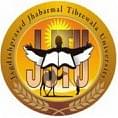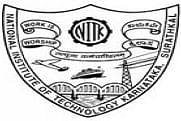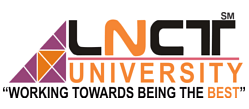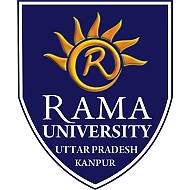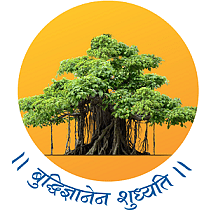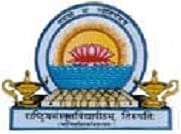Introduction about Ph. D in Physical Education
A Ph.D. in Physical Education from top college is an advanced academic degree program designed to prepare scholars,
researchers, educators, and leaders in the field of physical education,
exercise science, and sports-related disciplines. This specialized program
combines theoretical knowledge with practical experience to advance
understanding in areas such as exercise physiology, biomechanics, motor
learning, sport psychology, coaching, and physical activity promotion.
In a Ph.D. program
in Physical Education, students engage in rigorous coursework, research, and
scholarly activities aimed at deepening their understanding of the scientific
principles underlying human movement, physical fitness, and sports performance.
They explore topics such as exercise prescription, fitness assessment, sport
pedagogy, curriculum development, sport management, and the socio-cultural
aspects of physical activity and sport.
One of the primary
goals of a Ph.D. program in Physical Education is to prepare students to
conduct original research that contributes to the advancement of knowledge in
the field. Students engage in coursework in research methodologies, statistics,
and data analysis, as well as hands-on research experiences culminating in a
doctoral dissertation.
Ph.D. programs in
Physical Education often emphasize interdisciplinary collaboration, drawing
from fields such as exercise science, psychology, physiology, sociology,
education, and public health. This interdisciplinary approach provides students
with a comprehensive understanding of the complex factors influencing physical
activity behavior, health outcomes, and sports performance.
Graduates of a
Ph.D. program in Physical Education are prepared for diverse career pathways in
academia, research institutions, government agencies, sports organizations,
healthcare settings, and the private sector. They may pursue roles as
university faculty members, researchers, program directors, sport scientists,
coaches, athletic administrators, or consultants, working to promote physical
activity, enhance athletic performance, and improve public health outcomes.
Overall, a Ph.D. in
Physical Education equips students with the knowledge, skills, and expertise
needed to make meaningful contributions to the field, advance evidence-based
practices, and address critical issues related to physical activity, health,
and sports participation in individuals and communities.
What is admission process for Ph. D in Physical
Education ?
The admission process 2024 Ph.D. in Physical Education generally involves several steps,
although specific requirements may vary depending on the institution offering
the program. Here's a general overview of the typical admission process:
Research Programs: Start by researching Ph.D. programs in
Physical Education to identify those that align with your academic interests,
career goals, and personal preferences. Look into factors such as faculty
expertise, research opportunities, program reputation, and location.
Meet Prerequisites: Ensure you meet the prerequisites for
admission, which often include a master's degree in physical education,
exercise science, kinesiology, sports science, or a closely related field from
an accredited institution. Some programs may require specific coursework or
professional experience in physical education or related fields.
Application: Complete the application form provided by
the institution offering the Ph.D. program. Applications are typically
submitted online through the university's admissions portal. Pay close
attention to deadlines, as they vary between programs.
Transcripts: Submit official transcripts from all
post-secondary institutions attended, including undergraduate and graduate
coursework. These transcripts should demonstrate strong academic performance,
particularly in relevant coursework.
Letters of
Recommendation: Typically,
applicants are required to provide letters of recommendation from academic
and/or professional references who can speak to their qualifications, academic
abilities, research potential, and suitability for doctoral-level study in
physical education.
Statement of
Purpose: Write a compelling
statement of purpose or personal statement outlining your academic background,
research interests, reasons for pursuing a Ph.D. in Physical Education, career
goals, and how the program aligns with your aspirations. This is an opportunity
to demonstrate your passion for the field and your readiness for doctoral
study.
Resume or
Curriculum Vitae (CV):
Provide a comprehensive resume or CV detailing your educational background,
work experience, research experience, publications, presentations, and any
relevant achievements or certifications.
Standardized Test
Scores: Some programs may
require applicants to submit scores from standardized tests such as the GRE
(Graduate Record Examination) or the MAT (Miller Analogies Test). However, many
programs are moving away from standardized test requirements or offering waivers
for certain applicants.
Writing Sample: Some programs may request a writing
sample, such as a research paper, academic essay, or professional writing
sample, to assess your writing and analytical skills.
Interview (if
applicable): Depending on
the program, applicants may be invited to participate in an interview as part
of the admissions process. This interview may be conducted in person, over the
phone, or via video conference.
Application Fee: Pay the application fee, if applicable, as
required by the institution.
After submitting
your application materials, the admissions committee will review your complete
application package and make decisions based on factors such as academic
qualifications, research potential, letters of recommendation, statement of
purpose, and fit with the program. If admitted, you'll receive an offer of
admission along with any relevant financial aid or funding information.
What is eligibility for Ph. D in Physical Education
?
Eligibility criteria for Ph.D. in Physical Education can vary depending on the specific
program and institution offering the degree. However, here are some common
eligibility requirements you may encounter:
Educational
Background: Typically,
applicants are required to hold a master's degree in physical education,
exercise science, kinesiology, sports science, or a closely related field from
an accredited institution. The master's degree should provide a solid
foundation in relevant disciplines and may include coursework in areas such as
exercise physiology, biomechanics, motor control, sports psychology, and
research methods.
Academic
Performance: Applicants are
generally expected to have a strong academic record, particularly in
graduate-level coursework relevant to physical education or related fields.
This may be evidenced by transcripts from previous academic institutions.
Work Experience: While not always required, many Ph.D.
programs in Physical Education prefer applicants with relevant professional
experience in physical education, coaching, athletic training, exercise
science, or related fields. This experience might include teaching physical
education, coaching sports teams, conducting research, or working in fitness or
sports-related organizations.
Research Experience
and Skills: Demonstrated
research experience and skills are often valued for admission to a Ph.D.
program. This might include prior research projects, publications,
presentations at conferences, or involvement in research-related activities
related to physical education or related fields.
Letters of
Recommendation: Applicants
are typically required to submit letters of recommendation from academic and/or
professional references who can speak to their qualifications, academic
abilities, research potential, and suitability for doctoral-level study in
physical education.
Statement of
Purpose: A well-written
statement of purpose or personal statement is often required, in which
applicants articulate their academic background, research interests, reasons
for pursuing a Ph.D. in Physical Education, career goals, and how the program
aligns with their aspirations. This is an opportunity to demonstrate your
passion for the field and your readiness for doctoral study.
Standardized Test
Scores: Some programs may
require applicants to submit scores from standardized tests such as the GRE
(Graduate Record Examination) or the MAT (Miller Analogies Test). However, many
programs are moving away from standardized test requirements or offering waivers
for certain applicants.
Language
Proficiency: International
applicants whose native language is not English may need to demonstrate
proficiency in English through standardized tests such as the TOEFL (Test of
English as a Foreign Language) or the IELTS (International English Language
Testing System).
It's important to
note that eligibility requirements can vary between institutions and programs,
so it's essential to carefully review the specific requirements of each Ph.D.
program you're interested in applying to. Additionally, some programs may have additional
requirements or preferences beyond those listed here.
What is syllabus for Ph. D in Physical Education ?
The syllabus for Ph.D. in Physical Education can vary significantly depending on the specific
program, institution, and the research interests of faculty members. However,
here are some common topics and areas of study that you might encounter in a
typical Ph.D. program in Physical Education:
Advanced Exercise
Physiology:
Advanced study of
physiological responses to exercise
Exercise metabolism
and energy systems
Cardiovascular,
respiratory, and muscular adaptations to exercise
Physiological
determinants of performance in various sports and activities
Biomechanics and
Motor Control:
Advanced
biomechanical analysis of human movement
Biomechanics of
sport-specific movements and techniques
Motor control
theories and principles
Neuromuscular
coordination and motor learning
Research
Methodologies in Physical Education:
Quantitative and
qualitative research methods applicable to studying physical education and
exercise science
Design and
implementation of research studies in physical education and sports science
Statistical
analysis and interpretation of data related to physical activity and
performance
Sport Psychology
and Performance Enhancement:
Psychological
factors influencing sports performance
Psychological
skills training for athletes
Motivation,
confidence, arousal regulation, and goal setting in sport
Psychosocial
aspects of physical activity participation and adherence
Physical Education
Pedagogy and Curriculum Development:
Pedagogical
theories and models in physical education
Curriculum
development and assessment in physical education
Teaching strategies
for promoting physical literacy and lifelong physical activity
Inclusive practices
for diverse learners in physical education settings
Sport Sociology and
Cultural Studies:
Sociocultural
perspectives on sport and physical activity
Social inequalities
in sport participation and access
Gender, race,
ethnicity, and identity in sport
Critical analysis
of sport policies, practices, and institutions
Athletic Training
and Sports Medicine:
Injury prevention,
assessment, and rehabilitation in sports
Sports nutrition
and supplementation
Pharmacology and
ergogenic aids in sports performance
Exercise
prescription for special populations and clinical populations
Professional
Development and Leadership in Physical Education:
Professional ethics
and standards in physical education and sports science
Leadership and
management skills for physical education administrators and coaches
Legal and ethical
issues in sports administration and management
Professional
development opportunities and career pathways in physical education
Dissertation
Research and Writing:
Proposal
development and research design
Data collection and
analysis
Dissertation
writing and defence
Universityfindo is best
place where you learn , you encalcate habits , etc . We provide you platforms
to develop your skills and move towards a better future with best packages





